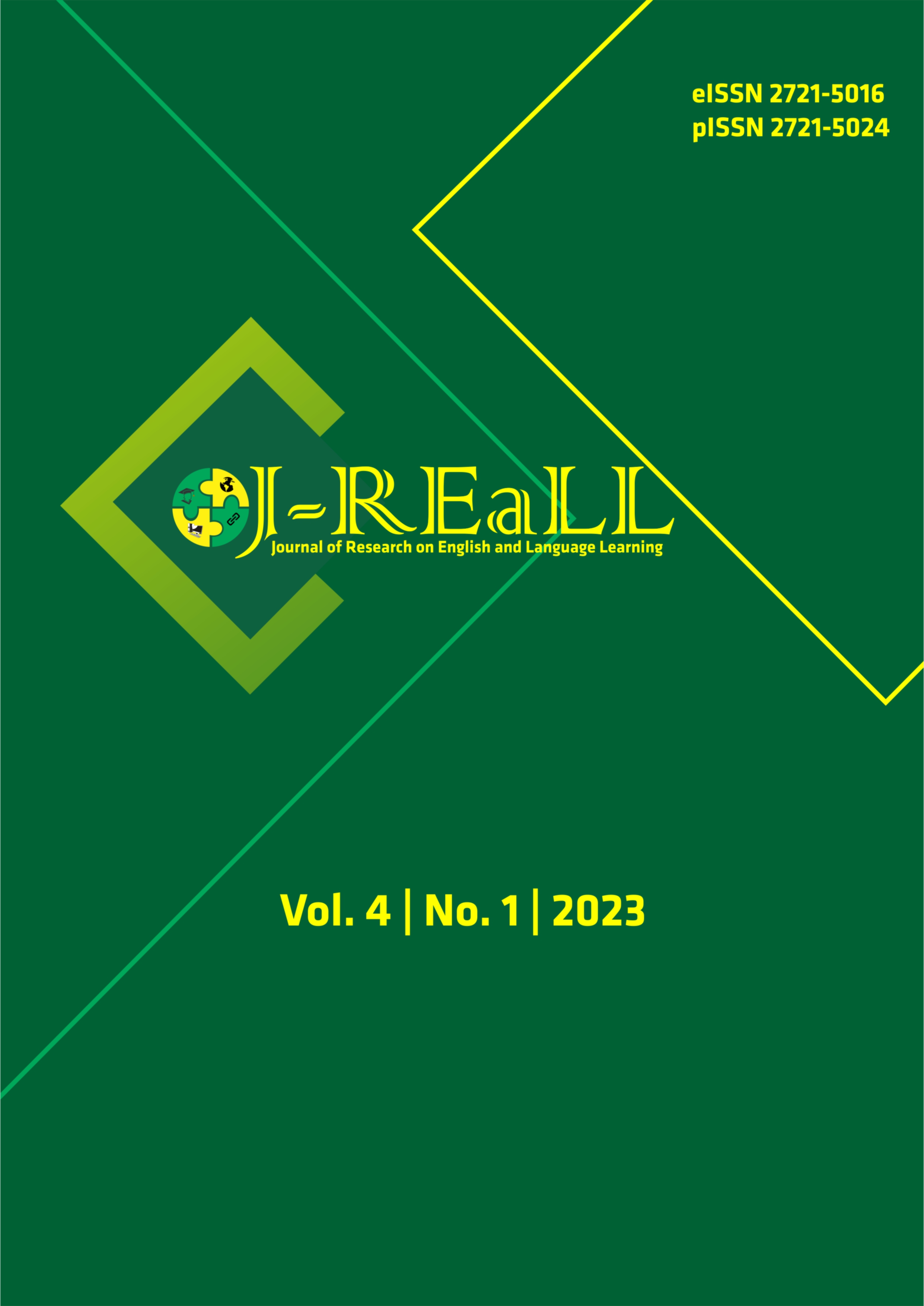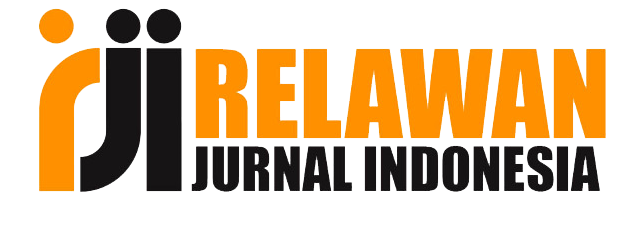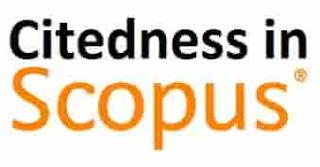Undergraduate students’ perception toward Edmodo integration into EFL classroom: An interview study
DOI:
https://doi.org/10.33474/j-reall.v4i1.18760Keywords:
Edmodo, EFL students' perceptions, higher education, interview study, LMSAbstract
This qualitative interview study (Kvale, 2007) aims to explore students’ perceptions about the integration of Edmodo into an Indonesian EFL writing classroom. Three participants enrolled in the Advanced Paragraph Writing course at one of the private universities in the East Java Province, Indonesia, voluntarily involved in the current study. Drawing upon semi-structured interviews, the thematic analysis (Braun & Clarke, 2006) showcased that the participants felt so comfortable with Edmodo as a learning management system (LMS) integrated into their classroom. Not surprisingly, they recommended this app to be incorporated into their classroom in the future as a complement to the traditional face-to-face classroom. Finally, we drew conclusions, limitations, practical implications, and recommendations.
References
Al-Kathiri, F. (2015). Beyond the classroom walls: Edmodo in Saudi secondary school EFL instruction, Attitudes and challenges. English Language Teaching, 8(1), 189–204. https://doi.org/10.5539/elt.v8n1p189
Al-naibi, I., AL-Jabari, M., & Al Kalbani, I. (2018). Promoting Students ’ Paragraph Writing Using EDMODO : An Action Research. TOJET: The Turkish Online Journal of Educational Technology, 17(1), 130–143. https://aisel.aisnet.org/jise/vol24/iss4/4
Al-Nawaisah, F. K. (2022). The Effectiveness of Edmodo Educational Platform in Developing Achievement and Attitude towards Science Subject among Ninth-Grade Students in Jordan. Britain International of Linguistics Arts and Education (BIoLAE) Journal, 4(2), 154–172. https://doi.org/10.33258/biolae.v4i2.709
Almoeather, R. (2020). Effectiveness of blackboard and Edmodo in self-regulated learning and educational satisfaction. Turkish Online Journal of Distance Education, 21(2), 126–140. https://doi.org/10.17718/TOJDE.728140
Alsmari, N. A. (2019). Fostering EFL Students’ Paragraph Writing Using Edmodo. English Language Teaching, 12(10), 44. https://doi.org/10.5539/elt.v12n10p44
Alsubaie, M. A. (2022). Distance education and the social literacy of elementary school students during the Covid-19 pandemic. Heliyon, 8(7), e09811. https://doi.org/10.1016/j.heliyon.2022.e09811
Altunkaya, H., & Ayranci, B. (2020). The use of Edmodo in academic writing education. Journal of Language and Linguistic Studies, 16(1), 89–103. https://doi.org/10.17263/JLLS.712659
Arora, R. G., & Chauhan, A. (2021). Faculty perspectives on work from home: Teaching efficacy, constraints and challenges during COVID’ 19 lockdown. Journal of Statistics and Management Systems, 24(1), 37–52. https://doi.org/10.1080/09720510.2021.1875567
Ateş Çobanoğlu, A. (2018). Student teachers’ satisfaction for blended learning via Edmodo learning management system. Behaviour and Information Technology, 37(2), 133–144. https://doi.org/10.1080/0144929X.2017.1417481
Aydin, S. (2021). Using Edmodo in language learning: A review of research. Biruni University 1st International English Language Teaching (ELT) Conference: “Catchy Trends in ELT.”
Balasubramanian, K., Jaykumar, V., & Fukey, L. N. (2014). A Study on “Student Preference towards the Use of Edmodo as a Learning Platform to Create Responsible Learning Environment.” Procedia - Social and Behavioral Sciences, 144, 416–422. https://doi.org/10.1016/j.sbspro.2014.07.311
Barkhuizen, G., Benson, P., & Chik, A. (2014). Narrative Inquiry in Language Teaching and Learning Research (P. Benson (ed.)). Routledge. https://doi.org/10.4324/9780203124994
Basilaia, G., & Kvavadze, D. (2020). Transition to Online Education in Schools during a SARS-CoV-2 Coronavirus (COVID-19) Pandemic in Georgia. Pedagogical Research, 5(4). https://doi.org/10.29333/pr/7937
Bicen, H. (2015). The role of social learning networks in mobile assisted language learning: Edmodo as a case study. Journal of Universal Computer Science, 21(10), 1297–1306. https://www.researchgate.net/publication/284722708_The_Role_of_Social_Learning_Networks_in_Mobile_Assisted_Language_Learning_Edmodo_as_a_Case_Study
Braun & Clarke, V. B. & V. (2006). Qualitative Research in Psychology Using thematic analysis in psychology Using thematic analysis in psychology. Qualitative Research in Psychology, 3(2), 77–101. http://www.tandfonline.com/action/journalInformation?journalCode=uqrp20%5Cnhttp://www.tandfonline.com/action/journalInformation?journalCode=uqrp20
Charoenwet, S., & Christensen, A. (2016). The effect of Edmodo learning network on students’ perception, self-regulated learning behaviors and learning performance. IMSCI 2016 - 10th International Multi-Conference on Society, Cybernetics and Informatics, Proceedings, Imsci, 297–300. https://www.semanticscholar.org/paper/The-Effect-of-Edmodo-Learning-Network-on-Students-’-Charoenwet-Suratpittaya/37ae11c94c362de0c09debea8822bb00a9b99afb
Chick, R. C., Clifton, G. T., Peace, K. M., Propper, B. W., Hale, D. F., Alseidi, A. A., & Vreeland, T. J. (2020). Using Technology to Maintain the Education of Residents During the COVID-19 Pandemic. Journal of Surgical Education, 77(4), 729–732. https://doi.org/10.1016/j.jsurg.2020.03.018
Darius, P. S. H., Gundabattini, E., & Solomon, D. G. (2021). A Survey on the Effectiveness of Online Teaching–Learning Methods for University and College Students. Journal of The Institution of Engineers (India): Series B, 102(6), 1325–1334. https://doi.org/10.1007/s40031-021-00581-x
Durak, G. (2017). International review of research in open and distributed learning using social learning networks (SLNS) in higher education: Edmodo through the lenses of academics. International Review of Research in Open and Distributed Learning, 18(1), 85–109.
Ekmekçi, E. (2016). Integrating Edmodo into Foreign Language Classes as an Assessment Tool. Participatory Educational Research, spi16(1), 1–11. https://doi.org/10.17275/per.16.spi.1.1
Ertmer, P. A., & Ottenbreit-Leftwich, A. T. (2014). Teacher technology change: How knowledge, confidence, beliefs, and culture intersect. Journal of Research on Technology in Education, 42(3), 255–284. https://doi.org/10.1080/15391523.2010.10782551
George, M. L. (2020). Effective Teaching and Examination Strategies for Undergraduate Learning During COVID-19 School Restrictions. Journal of Educational Technology Systems, 1–26. https://doi.org/10.1177/0047239520934017
Gushiken, B. K. (2013). Integrating Edmodo Into A High School Service Club: to Promote Interactive Online Communication. TCC Worldwide Online Conference, 1–6.
Holland, C., & Muilenburg, L. Y. (2011). Supporting Student Collaboration: Edmodo in the Classroom. Proceedings of Society for Information Technology & Teacher Education International Conference, 3232–3236.
Janesick, V. J. (2015). Peer Debriefing. The Blackwell Encyclopedia of Sociology, 2–3. https://doi.org/10.1002/9781405165518.wbeosp014.pub2
Jupp, V. (2015). social research method. SpringerBriefs in Computer Science, (9783319171470), 59–73. https://doi.org/10.1007/978-3-319-17148-7_5
Khodary, M. M. (2017). Edmodo Use to Develop Saudi EFL Students’ Self-Directed Learning. English Language Teaching, 10(2), 123. https://doi.org/10.5539/elt.v10n2p123
Khoza, S. B. (2020). Academics’ “Why” of Knowledge-Building for the Fourth Industrial Revolution and COVID-19 Era. International Journal of Higher Education, 9(6), 247. https://doi.org/10.5430/ijhe.v9n6p247
Kongchan, C. (2008). How a Non-Digital-Native Teacher Makes Use of Edmodo. Internacional Conference “ICT for Language Learning.”
Kvale, S. (2007). Kvale, Steinar (1996) - Interviews.pdf. In Interviews: An Introduction to Qualitative Research Interviewing (pp. 124–135). https://docs.google.com/viewer?a=v&pid=sites&srcid=ZGVmYXVsdGRvbWFpbnxlZGY2NDc1fGd4OjFiOTVkYTU2NGM4NjMxOTU
Lincoln, Y., & Guba, E. G. (1985). Establishing Trustworthiness. In Naturalistic Inquiry (pp. 289–331). SAGE Publication Ltd. https://www.elgaronline.com/view/9781800371316.00016.xml
Ma’azi, H., & Janfeshan, K. (2018). The effect of Edmodo social learning network on Iranian EFL learners writing skill. Cogent Education, 5(1), 1–17. https://doi.org/10.1080/2331186X.2018.1536312
Makumane, M. A. (2021). Students’ perceptions on the use of LMS at a Lesotho university amidst the COVID-19 pandemic. African Identities, 00(00), 1–18. https://doi.org/10.1080/14725843.2021.1898930
Manowong, S. (2016). Undergraduate Students’ Perceptions of Edmodo as a Supplementary Learning Tool in an EFL classroom. Silpakorn University Journal of Social Sciences, 16(2), 137–161.
Mark Angelo S. Enriquez. (20014). Students ’ Perceptions on the Effectiveness of the Use of Edmodo as a Supplementary Tool for Learning. DLSU Research Congress, 1–6.
Mok, K. H., Xiong, W., & Bin Aedy Rahman, H. N. (2021). COVID-19 pandemic’s disruption on university teaching and learning and competence cultivation: Student evaluation of online learning experiences in Hong Kong. International Journal of Chinese Education, 10(1). https://doi.org/10.1177/22125868211007011
Mpungose, C. B., & Khoza, S. B. (2020). Digitalised curriculum to the rescue of a higher education institution. African Identities, 1–21. https://doi.org/10.1080/14725843.2020.1815517
Nami, F. (2020). Edmodo in semi-technical English courses: towards a more practical strategy for language learning/practice. Computer Assisted Language Learning, 35(7), 1533–1556. https://doi.org/10.1080/09588221.2020.1819340
Neil Selwyn. (2011). Neil Selwyn: Education and Technology - key issues and debates. Alkalmazott Nyelvtudomány, 1–41.
Pokhrel, S., & Chhetri, R. (2021). A Literature Review on Impact of COVID-19 Pandemic on Teaching and Learning. Higher Education for the Future, 8(1), 133–141. https://doi.org/10.1177/2347631120983481
Qaddumi, H. A. (2021). A study on the impact of using Edmodo on students’ achievement in English language skills and retention. Education and Information Technologies, 26(5), 5591–5611. https://doi.org/10.1007/s10639-021-10510-6
Ractham, P., & Chen, C. (2013). Promoting the use of online social technology as a casebased learning tool. Journal of Information Systems Education, 24(4), 291–297.
Sefriani, R., Sepriana, R., Wijaya, I., Radyuli, P., & Menrisal. (2021). Blended learning with edmodo: The effectiveness of statistical learning during the covid-19 pandemic. International Journal of Evaluation and Research in Education, 10(1), 293–299. https://doi.org/10.11591/IJERE.V10I1.20826
Shinji, O. (2017). Edmodo as a tool for the global connection between Japanese and American college students in language learning. Research Bulletin of Education, 12, 9–17.
Siahaan, E. B. (2020). Students’ Perception of Edmodo use as a Learning Tool. JET (Journal of English Teaching), 6(February), 12–23. https://doi.org/10.33541/jet.v6i1.1061
Singh, M. N. (2021). Inroad of Digital Technology in Education: Age of Digital Classroom. Higher Education for the Future, 8(1), 20–30. https://doi.org/10.1177/2347631120980272
Starkey, L., Shonfeld, M., Prestridge, S., & Cervera, M. G. (2021). Special issue: Covid-19 and the role of technology and pedagogy on school education during a pandemic. Technology, Pedagogy and Education, 30(1), 1–5. https://doi.org/10.1080/1475939X.2021.1866838
Suleri, J. (2020). Learners’ experience and expectations during and post COVID-19 in higher education. Research in Hospitality Management, 10(2), 91–96. https://doi.org/10.1080/22243534.2020.1869463
Trust, T. (2012). Professional Learning Networks Designed for Teacher Learning. Journal of Digital Learning in Teacher Education, 28(4), 133–138. https://doi.org/10.1080/21532974.2012.10784693
Trust, T. (2015). Deconstructing an Online Community of Practice: Teachers’ Actions in the Edmodo Math Subject Community. Journal of Digital Learning in Teacher Education, 31(2), 73–81. https://doi.org/10.1080/21532974.2015.1011293
Trust, T. (2017). Motivation, Empowerment, and Innovation: Teachers’ Beliefs About How Participating in the Edmodo Math Subject Community Shapes Teaching and Learning. Journal of Research on Technology in Education, 49(1–2), 16–30. https://doi.org/10.1080/15391523.2017.1291317
Unal, E., & Uzun, A. M. (2021). Understanding university students’ behavioral intention to use Edmodo through the lens of an extended technology acceptance model. British Journal of Educational Technology, 52(2), 619–637. https://doi.org/10.1111/bjet.13046
Vyas, L., & Butakhieo, N. (2021). The impact of working from home during COVID-19 on work and life domains: an exploratory study on Hong Kong. Policy Design and Practice, 4(1), 59–76. https://doi.org/10.1080/25741292.2020.1863560
Yunkul, E., & Cankaya, S. (2017). Students’ attitudes towards Edmodo, a social learning network: A scale development study. Turkish Online Journal of Distance Education, 18(2), 16–29. https://doi.org/10.17718/tojde.306554
Downloads
Published
How to Cite
Issue
Section
License
Copyright (c) 2023 Journal of Research on English and Language Learning (J-REaLL)

This work is licensed under a Creative Commons Attribution 4.0 International License.
Authors who publish this journal agree to the following terms:
- Authors retain copyright and grant the journal right of first publication with the work simultaneously licensed under a Creative Commons Attribution License that allows others to share the work with an acknowledgement of the work's authorship and initial publication in this journal.
- Authors can separately make additional contractual arrangements for non-exclusive distribution published by the journal (e.g., publish it in a book), with an acknowledgement of its initial publication in this journal.
- Authors are allowed and encouraged to send their work via online (e.g., in the institutional repositories or their website) after published by the journal.






















